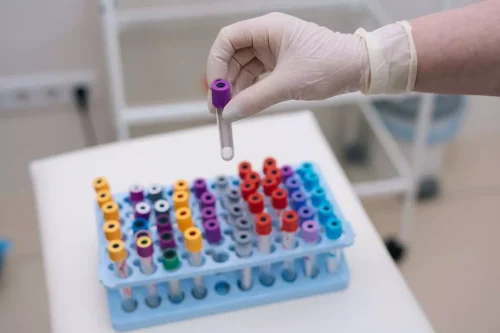
It is as applicable to romantic relationships as the workplace, and even when waiting in a long and annoying grocery line. They include deaths where the primary (or underlying) cause of death listed on the death certificate was one of alcoholism and anger 58 alcohol-related causes. Alcohol-related deaths increased among all age groups (during 2020–2021) from just a few years earlier (2016–2017). Learning to manage these powerful emotions effectively is important for overall well-being.
Alcohol use disorder
Plus, alcohol-related rage and aggression are tied to intimate partner violence, verbal and physical abuse, sexual assault, violent crimes, verbal and physical altercations, and more (1). By explaining these distinctions and eliminating common misconceptions, we can create a comprehensive understanding of the relation between alcohol consumption and emotional responses, ultimately promoting healthier attitudes and behaviors towards alcohol use. Misconceptions often surround the relationship between alcohol consumption and emotional responses, particularly anger. By acknowledging the potential for alcohol to exacerbate anger and aggression, individuals can make informed decisions about their drinking habits and develop proactive strategies for managing their emotions effectively, both in sober and intoxicated states. For individuals already dealing with anger issues, alcohol can intensify and magnify these underlying challenges. This amplification occurs due to alcohol’s impact on the brain’s neural pathways, particularly those involved in emotional regulation.
How Does Alcohol Impact the Brain?
Interestingly, those in the control group tended to misidentify expressions as happy. Mental rigidity and alcohol consumption have been explored as contributing to domestic violence. One such study included 136 men with a history of intimate partner violence (IPV) (Estruch, 2017). The individuals who had higher mental rigidity had lower empathy and perception of the severity of IPV. Additionally, they reported higher alcohol use and hostile sexism than those lower in mental rigidity. Drinking cocktails that include energy drinks should be considered a possible factor for aggressive behavior as well.
The Link Between Alcohol and Aggression

These mirror neurons can activate your anger when someone else is angry. But you can also use your mirror neurons to calm the angry brain of the other person. By projecting peace, you communicate that you are not a threat, and the other person does not need to be envious or suspicious. Ruminating or having uncontrolled negative thoughts about past or future possibilities tends to worsen feelings of anger, anxiety, or depression. A survey study of 1,933 adolescent students found that the students with higher anxiety scores had more aggressive behaviors. However, some people may find that feelings of anxiety and anger become overwhelming and affect their daily lives and relationships.
Connect with Ashwood Recovery to Start Co-Occurring Disorders Treatment in Idaho Today
That is, high-anger, alcohol-involved individuals were at greatest risk for a range of negative anger and alcohol consequences. Providing anger management skills to such individuals might help lower anger and conflict that would alter these negative consequence trajectories. Consistent with our previous work (Walitzer et al., 2009), we hypothesized that AA Facilitation treatment would lead to greater AA involvement, and increased AA involvement would predict improved drinking outcomes among these clients. Clients receiving the AA facilitation treatment reported significantly more AA behaviors and steps worked than clients receiving alcohol-adapted anger management treatment. This differential effect was also marginally present for during-treatment AA meeting attendance and posttreatment drinking consequences. In sum, these findings underscore that AA meeting attendance, behaviors, and steps worked are important therapeutic factors in AA facilitation treatment.
- Suddenly, the person they know and care for is a much different, angrier person — short-tempered, abusive and often violent.
- Integrating therapy, robust support systems and personalized coping strategies is paramount to fostering sustainable progress towards emotional equilibrium.
- A more recent study of 249 male and female heavy drinkers with a history of past-year intimate partner violence found that acute alcohol intoxication moderated the impact of problematic alcohol use on an attentional bias toward anger (Massa et al., 2019).
- The connection between alcohol consumption and anger is complex, with alcohol often acting as a catalyst that amplifies underlying challenges related to anger management.
- Emotional regulation skills and relapse prevention tools are also taught.
Seeking help is essential, but remember, managing anger and recovering from alcoholism requires effort. Anger often leads to excessive drinking, which can then amplify anger issues. Without breaking this cycle, it can damage both you and those around you. Addressing both anger and drinking is crucial, with professional help highly recommended.

AUD Treatments Targeting Stress, Craving, and Loss of Control of Alcohol Intake
The link between anger and alcoholism is cyclical—they can exacerbate each other if left unchecked. Addressing and letting go of anger is vital in the Alcoholics Anonymous (AA) 12-step approach, which involves a moral self-inventory and overcoming personal flaws. If you are close to someone who experiences alcohol-induced anger, it’s important to get help and support.
Instead, each participant randomly lost the game about half the time and was led to believe another person was delivering shocks to them during each loss. Instead, they may zoom in on a particularly small thing and have an overly aggressive response (2). Alcohol causes changes in the prefrontal cortex (PFC), leading to disinhibition.
It destroys more alcoholics than anything else.” Addressing both addiction and anger is crucial. Outpatient programs are often part of aftercare programs once you complete an inpatient or PHP program. It is important for people undergoing treatment to have a stable and supportive home environment without access to drugs and alcohol.

